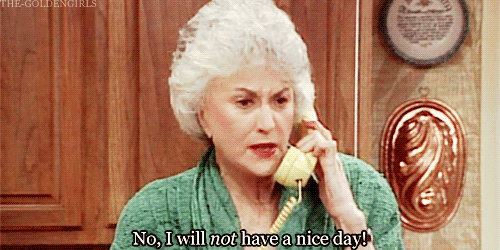68. Avoid toxic positivity
All of the advice to “think positively” and “look on the bright side” can sometimes have harmful consequences.
Data point of the week
Research shows that trying to suppress negative thoughts or emotions only intensifies them. One study of individuals with an anxiety or mood disorder asked participants to either accept or suppress their feelings while watching an emotional film. The researchers found that the suppression group had an increased heart rate, more negative affect, poorer social adjustment, and decreased wellbeing after the film.
Other studies looked at the impact of positive self-statements, or affirmations. Affirmations are often used to try to make us feel better about an area of ourselves we feel bad about, but do they work? The studies show that affirmations had the most impact on participants with the lowest self-esteem … which was that the affirmations made them feel worse. The researchers concluded that when positive affirmations contradict how people see themselves, they’ll reject the statement, or hold onto to their original view of themselves even more strongly.
Reflection
Have you ever shared something hard with a friend and they responded by encouraging you or saying something positive or hopeful? It happens all the time. And it’s usually a well-meaning attempt to reassure, cheer us up, or to share a more positive view of us that we hold of ourselves.
It’s not that being positive is never helpful, it’s just that when the hard thing we shared is skipped over, it can leave us feeling invalidated and unheard … and teach us that there’s no room for negative emotions in the relationship.
We don’t just do this with other people, we do it to ourselves too, telling ourselves we shouldn’t be having a hard time, we should “be grateful,” and so on. And as Carl Jung said, “What you resist, persists”
Hope, optimism, and gratitude are powerful practices for improving mood … but not when they’re used to deny or suppress more difficult feelings. It’s possible to acknowledge we’re going through a hard time AND feel grateful at the same time.
Always looking on the bright side can minimize or invalidate very real struggles
Connection Skill & Action Step: Avoid toxic positivity. Let people feel what they’re feeling (this includes you).
Instead of trying to convince yourself—and other people—to feel better, practice creating space for difficult, uncomfortable emotions.
The next time someone shares something hard they’re going through, notice if you feel the urge to cheer them up or say something positive. Pause and express empathy instead.
The next time you’re having a hard time, notice if you judge how you’re feeling, tell yourself it’s no big deal, that you should get over it, that you’re lucky, etc. Pause and take a moment to practice self-compassion instead.
Questions (Please share your responses in the comments):
Have you ever felt worse from someone trying to cheer you up? How do you wish they’d responded instead?


